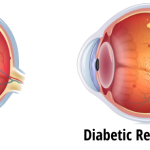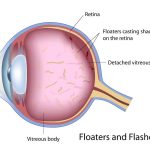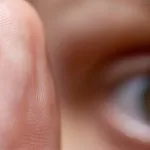
Debunking Myths About Vision Correction Surgeries
Introduction
In today’s world, where technology continues to advance at a rapid pace, vision correction surgeries have become increasingly popular. However, misinformation and myths about these procedures can often deter individuals from exploring the potential benefits they offer.
Vision Correction Surgeries: Separating Fact from Fiction
Myth #1: Vision correction surgeries are risky and dangerous
Contrary to popular belief, vision correction surgeries, such as LASIK (Laser-Assisted In Situ Keratomileusis), are considered safe and effective. These procedures have undergone extensive research and development, with advancements in technology enhancing their precision and success rates. Highly skilled ophthalmologists perform these surgeries, ensuring the highest level of safety and minimizing the risk of complications.
Myth #2: Vision correction surgeries are painful
Many individuals fear that vision correction surgeries are accompanied by excruciating pain. However, this is far from the truth. During these procedures, anesthetic eye drops are used to ensure patients remain comfortable throughout. While some patients may experience mild discomfort or a sensation of pressure, the overall process is virtually painless.
Myth #3: Vision correction surgeries lead to immediate perfect vision
Although vision correction surgeries can significantly improve visual acuity, achieving perfect vision overnight is unrealistic. The outcome of these surgeries varies from person to person, and factors such as the severity of the initial vision impairment and individual healing patterns can influence the results. While many patients experience remarkable improvements shortly after the procedure, it is essential to have realistic expectations and understand that complete perfection may not be attainable.
Myth #4: Vision correction surgeries are only for nearsightedness
Another common misconception is that vision correction surgeries are exclusively for nearsighted individuals. However, these procedures are also suitable for individuals with farsightedness and astigmatism. Advanced techniques allow ophthalmologists to address multiple refractive errors during a single surgery, providing comprehensive vision correction solutions tailored to each patient’s needs.
Myth #5: Vision correction surgeries are not permanent
Some individuals believe that the effects of vision correction surgeries are temporary, and their vision will eventually regress to its original state. While it is true that age-related changes in vision can occur over time, the results of these surgeries are long-lasting. The reshaping of the cornea, for instance, in LASIK surgery, permanently corrects vision impairments. It is important, however, to maintain regular eye check-ups to monitor any changes that may require additional treatment or adjustments.
Frequently Asked Questions
Q: Is LASIK suitable for all individuals?
A: LASIK is not suitable for everyone. Individuals with certain medical conditions, such as autoimmune disorders or unstable eye prescriptions, may not be eligible for LASIK. It is crucial to consult with an experienced ophthalmologist who can evaluate your specific circumstances and recommend the most suitable vision correction procedure.
Q: What is the recovery process like after vision correction surgery?
A: The recovery process after vision correction surgery is typically smooth and relatively quick. Most patients experience improved vision within a few days, and any discomfort or dryness usually subsides within a week or two. It is essential to follow your doctor’s post-operative instructions, including avoiding strenuous activities, protecting your eyes from bright lights, and using prescribed eye drops to aid in the healing process.
Q: Can I wear contact lenses after vision correction surgery?
A: In most cases, individuals who undergo vision correction surgery will no longer require contact lenses or glasses. However, it is important to discuss this with your ophthalmologist, as individual circumstances may vary. Your doctor will provide guidance on when it is safe to discontinue the use of contact lenses and ensure your eyes have fully healed before making any changes to your eyewear.
Q: Are there any risks or complications associated with vision correction surgeries?
A: Like any surgical procedure, vision correction surgeries carry some risks. However, serious complications are rare. The most common side effects include dry eyes, temporary glare or halos around lights, and fluctuations in vision. These usually resolve within a few weeks or months. It is crucial to choose a skilled and experienced ophthalmologist who will thoroughly evaluate your candidacy and discuss potential risks and complications before proceeding with the surgery.
Q: Can I undergo vision correction surgery if I have astigmatism?
A: Yes, individuals with astigmatism can undergo vision correction surgery. Advanced techniques, such as wavefront-guided LASIK, can effectively correct astigmatism by reshaping the cornea to achieve a more spherical shape. Your ophthalmologist will determine your eligibility for the procedure based on a comprehensive evaluation of your eye health and refractive error.
Q: How long does it take to see the final results after vision correction surgery?
A: While many individuals experience significant improvement in their vision shortly after the surgery, it may take a few weeks or even months to achieve the final results. The healing process varies among individuals, and it is important to follow your doctor’s instructions and attend follow-up appointments to ensure optimal healing and vision correction.





